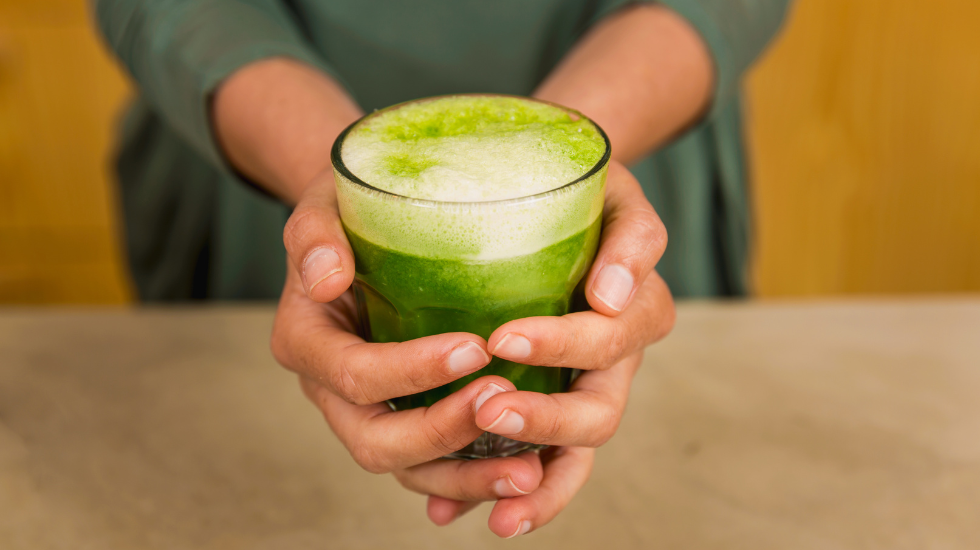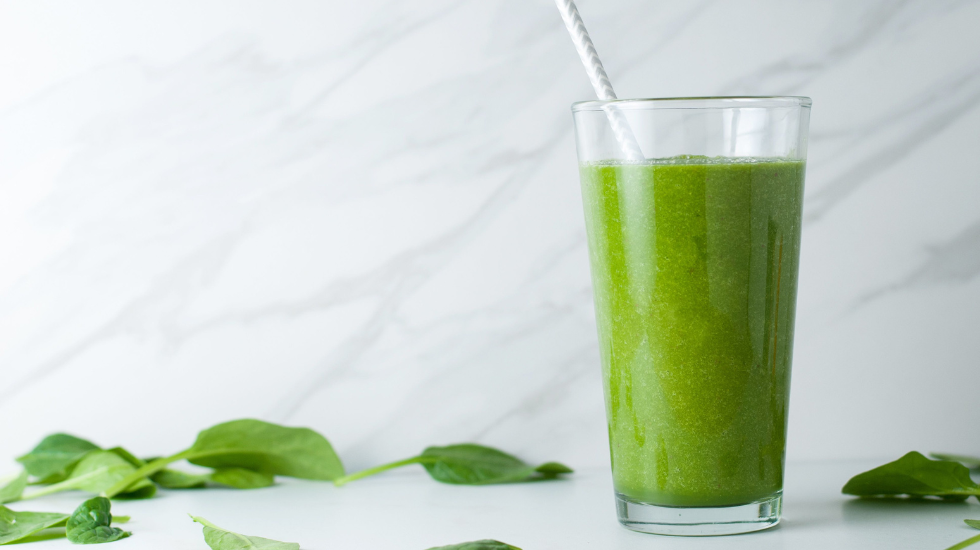Have you ever thought about how many harmful toxins you’re exposed to on a daily basis, and then wondered: how do you detox your gut?
Think about it, there are a lot of environmental toxins when you go outside— or even stay inside! There are toxins in cleaning products, and even in the foods you eat. All this exposure can really add up and leave you feeling run-down and sick. Not only that, but many of these toxins can leave you feeling bloated, irregular, constipated, and uncomfortable. This is where a healthy gut detox can really change your life.
I’ve written a lot about detoxing— in fact, three of my books have the word “detox” in the title!
So if you’ve been reading the Solluna blog for a while, then you probably know all about what detox is and why toxin elimination is so important to good health. If you do, you can jump down to the section where I talk about how to detox your gut. If you’re new here, welcome! Thank you for joining us. :) Let’s talk about detoxification.
The Benefits Of A Gut Detox
Detoxification— also known as detoxes or cleanses— does exactly as the name suggests. A detox or a cleanse helps you remove waste and harmful toxins from your gut that accumulate over time, like pesticides and heavy metals.
When we free our digestive systems from these toxins, we give them room to “breathe” and our bodies start to flourish as we are able to absorb more nutrients.
If done the right way, a healthy detox can provide benefits that go beyond your digestive tract:
- Bowel regularity: gut detoxing encourages gentle, easier, and more regular waste elimination by helping your digestive system rid itself of toxins and stagnant waste.
- Bloating: Healthier digestion eliminates yeast and unhealthy bacteria in your gut, reducing gas and preventing uncomfortable bloating.
- Improves energy: Removing the toxins in your gut that make you feel sluggish and tired improves flow in your GI tract and gives your energy a much-needed boost.
- Improves food sensitivity: Removing built-up toxins and waste in your colon helps your body absorb the nutrients in your food easier and more efficiently.
- Helps clear your skin: Removing the toxins from your digestive system helps cleanse your body of the bacteria and toxins that contribute to acne and skin conditions.
- Makes your hair shinier and healthier: Eliminating toxins and free radicals from your gut can help make your hair healthier and more vibrant.
However, there are a lot of misconceptions about detoxing and how best to do it.
Related: Practical Tips to Cleanse Your Life and Body
Different Ways to Detox For Better Digestion
Detoxification can involve a variety of approaches. The detox method depends on what toxins you want to be rid of. Some of these can include:
- Fasting, such as a water fast or a lemon juice cleanse
- “Detox diets” where you remove junk food, processed foods, or even solid food from your diet for a certain length of time to help you lose weight
- Colon cleansing, either with laxatives, colonics, or enemas
- Specialty detox supplements
- Reducing outdoor exposure to detox environmental toxins
A detox can be a good way to reset your entire system and give your health a much-needed boost, but it’s important to make sure you do it safely. While there are real health benefits to eliminating processed food from your diet and drinking lemon water, not every detox method is good for you.
I absolutely do not recommend detox methods like taking laxatives or just drinking a bunch of powders that don’t have the live, living vitamins and enzymes of raw foods.
Looking for detox methods that really work? Check out my recommendations!
How Often Should I Detox My Gut?
Honestly, it depends. It’s important to take measures to support your gut and detoxing on a daily basis, or what I call ongoing cleansing. In our toxic modern world, our systems can get overloaded often. For other dedicated cleanses, it’s not a specific prescription per se but something you might want to consider doing semi-regularly, to ensure your system is optimized over time.
However, it’s important to keep in mind that detoxification isn’t always a pretty process, especially if you have a lot of toxins in your body. For example, sweating is your body’s natural way of keeping you cool and detoxing your pores. But anyone who’s ever been drenched in sweat knows that it is not fun. Detoxing your digestive system— especially if you’ve been irregular or even constipated— can be uncomfortable, but oh so wonderful in the end!
There’s nothing more magical than feeling light. When we feel light, we feel creative, resilient, open and more peaceful and joyful in general.
5 Ways To Detoxify Your Gut Safely and Effectively
The best detox is one that you can do continuously, in small steps. That’s the key here— small steps. Doing a slow, continuous detoxification can help protect your body and flush out any invading toxins that you’re exposed to. Few things worth doing are easy, but if you do it right, your body will reap the benefits!
Here are some tips I use to keep my gut on track!
1. Avoid Unnecessary Ingredients in Your Food
Food is my first cornerstone for nourishing a healthy life for a reason! If you’re mindful of the food you eat, then your body will remain vibrant, energetic, and ready to take on the day.
Without a mindful diet, your body detox will suffer! The point of a detox is to clear your gut of toxic waste that is found in many foods such as unnecessary ingredients like dyes, preservatives, and even pesticides and toxins!
To avoid these, I recommend consuming wholesome, nutritious foods and avoiding overly processed foods and junk food. Make sure you get plenty of these in your diet:
- Fresh fruits and vegetables, preferably organic. Great plant diversity in your diet supports exceptional gut health. Organic fruits and veggies also greatly reduce the number of toxins you bring into your body since they’re not treated with the same pesticides and poisons that non-organic produce is.
- Nutritious whole grains. Whole grains are rich sources of fiber and nutrients that your body needs to naturally detox. Carb-phobic? No wonder with all the diets being promoted out there! But rest assured. A throughline of the diets within the Blue Zones, the regions in the world that have the healthiest people with the highest rates of longevity, feature carbs and grains not only every day, but virtually every meal.
- Healthy fats and protein. Fat and protein are vital components of a healthy diet, and help your body maintain its natural digestive enzymes to help you detox.
- Binding fiber. Fiber helps your body naturally detox by helping move waste and toxins out of your body during digestion. Fiber is critical to gut health all around.
2. Limit Caffeine and Alcohol
Did you know that caffeine and alcohol are the most used recreational drugs in the entire world?
It’s true! Many people need their coffee to get through the day, but you may want to reconsider your morning coffee. Coffee beans are sprayed with so many pesticides, and can cause a toxic buildup in your body over time!
Both caffeine and alcohol are acidic as well, which can trigger unpleasant digestive symptoms, as well as acid reflux and heartburn. [1] Diseases thrive in acidic environments, so limiting these substances is a very good way to keep yourself healthy.
Caffeinated beverages are best enjoyed minimally for effective detoxing, but other nourishing, hydrating drinks are vital to an effective and healthy gut detox.
3. Stay Hydrated
Like dietary fiber, water is vital to a healthy detox. If you’re not properly hydrated, then your body can’t detox properly.
To make sure you’re getting enough water each day, follow this rule— drink half your body weight in ounces each day. So if you weigh 150 pounds, you divide that number in half to get 75. That’s how many ounces of water you should drink each day if you’re at that weight.
Getting enough water ensures that the fiber in your diet can eliminate waste and toxins efficiently. It also boosts your immune system and can help clear up acne and brighten your skin too.
4. Get Plenty of Fiber in Your Diet
Too often I have people reaching out to me about taking fiber supplements to detox. Not only can fiber supplements leave you feeling bloated and gassy, you can get more than enough fiber from a healthy diet!
Getting enough dietary fiber is one of the easiest ways to kickstart a detox. This is because fiber binds itself to your stool and helps it leave your body more efficiently. When your digestion is healthy, then your body can regularly rid itself of toxic build ups many toxins in your stool. But when you don’t get enough fiber in your diet, you’re more likely to feel irregular, bloated, and uncomfortable.
A plant-based diet is the best way to make sure your body gets all the fiber it needs to naturally detox. Good sources of plant fiber include:
- Legumes like beans and lentils
- Oats
- Quinoa
- Brown rice
- Leafy greens like kale
- The Glowing Green Smoothie® (GGS)
5. Take the Right Detox Supplements
The right all-natural supplements can help you detox without the sluggishness or laxative effects caused by traditional supplements. Too many supplements on the market today are filled with unnecessary ingredients or habit-forming herbs.
The best supplements are ones that are close to nature and work symbiotically with your body’s unique rhythm to get rid of waste. I had this in mind when I created my Feel Good Detoxy 2.0 formula.
Because Detoxy focuses on delivering oxygen to feed healthy bacteria and clear acidic toxins, there is no need for harmful herbs and chemicals to clear your system. When you combine Detoxy with my Feel Good Digestive Enzymes and SBO Probiotics+, you’ll absorb nutrients from your diet better, and feel beautiful inside and out.
Remember though, Beauty, you should never rely on supplements alone! They’re meant to work in tandem with a healthy diet and a mindful lifestyle to keep your gut healthy and clean!
Keep Toxicity Out of Your Life!
With all the environmental toxins and other free radicals we’re exposed to in our day-to-day life, it’s so important to detox in a healthy way. Remember, you want a slow and steady detox that keeps on working each day, rather than a “one-and-done” solution that can be uncomfortable or even dangerous!
To learn more about safe ways to detox, check out my books Beauty Detox Solution, The Beauty Detox Foods, and The Beauty Detox Power.
There are a lot of ways to detox Beauties, but not all of them are safe. That’s why it’s so important to detoxify your body gradually and naturally. It’ll help you feel so much better in the long run.
Lots of love,
Citations
- Aubrey, Allison. “Got Heartburn? Maybe You Should Rethink Your Drink.” NPR, NPR, 13 Aug. 2012, www.npr.org/sections/thesalt/2012/08/13/158097387/got-heartburn-maybe-you-should-rethink-your-drink.







0 Comments